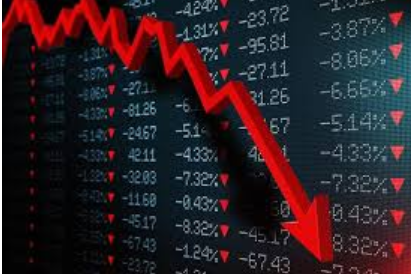Putins krig i Ukraine samt de vestlige økonomiske sanktioner kan føre til en ny recession i USA og Europa – i særlig grad i Europa, der kan blive hårdt ramt, hvis der iværksættes en boykot af olie og gas. Priserne drøner opad og øger inflationen, og det kan tvinge centralbankerne til at stramme pengepolitikken. Desuden vokser forsyningsproblemerne igen, skriver Reuters markedsanalytiker Peter Kemp.
Uddrag fra Fidelity/Reuters:
COLUMN-Global recession risks rise after Russia invades Ukraine: Kemp
U.S. and European economies are facing a heightened risk of a recession this year as Russia’s invasion of Ukraine severely disrupts supply chains and causes inflation to accelerate to the fastest rate since the 1970s.
Yields on U.S. government debt maturing in two years’ time are trading less than 30 basis points below notes maturing in ten years, the narrowest spread since the pandemic erupted worldwide in early 2020.
Yield-curve flattening has been one of the most reliable indicators of an impending recession in recent decades since it measures the current stance of monetary policy relative to long-term interest rate expectations.
The current spread is in the 77th percentile for all months since the start of 1990, up from 58th percentile at the end of December and the 33rd percentile this time last year, indicating an elevated risk of recession.
In the last three decades, whenever the spread has narrowed this much it has heralded either a significant mid-cycle business slowdown or an end-of-cycle recession.
Even before the invasion, prices for energy, raw materials, industrial components, consumer products and freight were rising at the fastest rate since the early 1980s.
But the conflict and sanctions imposed in response by the United States and its allies have now sent prices for oil, gas, coal and other commodities surging even higher.
Severe disruptions have been reported in ocean shipping, international passenger and cargo aviation and the global supply chains for chemicals and automakers, among other sectors.
The result is equivalent to a massive loss of global production capacity, a supply-side shock that is simultaneously intensifying inflation while likely to depress output and employment.
Businesses grappling with sanctions, supply chain problems and the rapidly escalating cost of their inputs are less likely to undertake risky investment expenditures.
Households hit by higher bills for gas, electricity, motor fuels, cars and other durable items will have to trim expenditure on other goods and services.
Recessionary forces are intensifying rapidly across North America and Europe as global supply chains are stretched to breaking point.
POLICY DILEMMA
The U.S. Federal Reserve is impaled on the horns of dilemma, trapped between its dual goals to maximise employment and maintain price stability.
The central bank is simultaneously under pressure to raise interest rates faster to restrain inflation but leave them lower to offset the heightened uncertainty arising from the conflict.
For the time being, senior U.S. policymakers have indicated the need to restrain inflation outweighs other considerations and they plan to start increasing interest rates from this month.
Based on the fed funds futures market, traders expect the central bank to raise interest rates by six quarter-points (or equivalent) by the end of the year to bring inflation under control, though that is down slightly from seven anticipated increases before the invasion.
In the past similar contradictions between policy goals have created conditions for a sharp slowdown in the business cycle or a recession.
Top policymakers and economists like to say that economic expansions do not die of old age, they are murdered. In other words, they do not end naturally and inevitably but when the Fed tightens policy too much.
But that is not quite true. Policymakers do not deliberately “murder” expansions. Engineering a recession is rarely if ever the explicit aim of monetary policy.
Instead, expansions end and recessions arrive when policymakers are forced to sacrifice (temporarily) their long-term goal of supporting growth to some more urgent and pressing goal such as lowering inflation.
In 2022, the poisonous cocktail of supply disruptions, rapidly rising prices, heightened business and household uncertainty and slowing growth in output and employment presents policymakers with precisely this problem.
Recession risks are even greater in Europe because region’s economic integration with Ukraine and Russia and greater exposure to surging international gas prices will magnify the size of the supply shock.
Even before the invasion of Ukraine, the Fed and other central banks were confronted with the tricky task of engineering a soft-landing to control inflation rather than a hard landing that would bring a recession.
The conflict and its massive impact on supply chains has made that task very much harder and increased the probability that the attempt at a soft landing will turn into a hard one.
John Kemp is a Reuters market analyst. The views expressed are his own.











